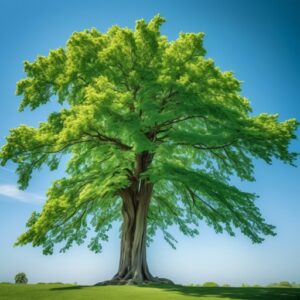Nestled along the banks of the mighty Mississippi, Memphis, Tennessee, is renowned for its rich cultural heritage, soulful music, and, of course, its mouthwatering cuisine. From sizzling barbeque joints to trendy bistros, the city’s vibrant restaurant scene is a testament to its culinary prowess. However, amidst the hustle and bustle of creating delectable dishes and providing exceptional dining experiences, there’s one aspect that many restaurateurs may overlook: tree laws.
In recent years, the significance of trees in urban environments has gained considerable attention. Not only do they enhance the aesthetic appeal of neighborhoods, but they also provide invaluable environmental benefits, such as improving air quality, reducing urban heat islands, and mitigating stormwater runoff. Consequently, municipalities across the United States, including Memphis, have implemented tree protection ordinances to safeguard these natural assets. In this article, we’ll delve into why Memphis restaurant owners should be cognizant of tree laws and how compliance can contribute to their success.
Environmental Impact
Trees play a pivotal role in maintaining ecological balance within urban landscapes. In a city like Memphis, where summers can be sweltering and rainfall intense, trees offer much-needed shade and help regulate temperatures. Moreover, their extensive root systems absorb excess water, reducing the risk of flooding and soil erosion.
For Memphis restaurants, incorporating trees into their outdoor spaces can create inviting, shaded areas for patrons to dine al fresco. However, before planting or removing trees, it’s essential to familiarize oneself with Memphis’ tree ordinances. These regulations dictate permissible actions regarding tree preservation, removal, and replanting, ensuring that development activities don’t compromise the city’s green infrastructure.
Community Engagement
Beyond their ecological significance, trees also foster a sense of community and pride among residents. In Memphis, iconic tree-lined streets, such as those in Midtown and Cooper-Young, are emblematic of the city’s character and charm. As stewards of these natural assets, restaurant owners have an opportunity to engage with the community by participating in tree planting initiatives or supporting local arboricultural events.
By aligning their business practices with the city’s commitment to urban forestry, restaurants can enhance their reputation as environmentally conscious establishments. This not only resonates with eco-conscious consumers but also strengthens the restaurant’s ties to the local community.
Legal Considerations
Failure to comply with tree ordinances can have legal ramifications for restaurant owners. In Memphis, violating tree protection regulations may result in fines, project delays, or even legal action. Therefore, it’s imperative for restaurateurs to consult with arborists or landscape architects familiar with local tree laws before undertaking any construction or landscaping projects that involve trees.
Additionally, understanding the permitting process for tree-related activities is crucial. Whether it’s pruning branches, transplanting trees, or removing hazardous specimens, obtaining the necessary permits demonstrates a commitment to responsible stewardship of urban greenery.
Brand Differentiation
In an increasingly competitive market, differentiation is key to standing out in the restaurant industry. Embracing sustainability and environmental stewardship can set a restaurant apart from its competitors. By highlighting their adherence to tree laws and showcasing efforts to preserve and enhance the urban canopy, restaurants can attract environmentally conscious diners who value businesses aligned with their values.
Moreover, integrating trees into restaurant design can create unique and memorable dining experiences. From cozy courtyards adorned with twinkling lights to rooftop gardens boasting panoramic views, green spaces enhance ambiance and provide an escape from the urban hustle.
Conclusion
In the heart of Memphis, where the scent of barbeque wafts through the air and the blues permeate the streets, restaurants play a vital role in shaping the city’s culinary landscape. However, amidst the sizzle of grills and clink of glasses, it’s essential for restaurateurs to remember the significance of trees and the role they play in fostering vibrant, sustainable communities.
By familiarizing themselves with Tree Law Memphis and embracing environmentally responsible practices, restaurants can not only contribute to the preservation of the city’s urban forest but also enhance their brand reputation and community engagement. Whether it’s creating inviting outdoor dining spaces shaded by majestic oaks or participating in tree planting initiatives, restaurateurs have the opportunity to weave sustainability into the fabric of their businesses, ensuring a greener, more vibrant future for Memphis and its residents.


